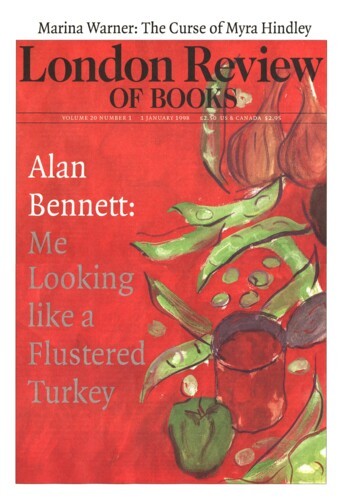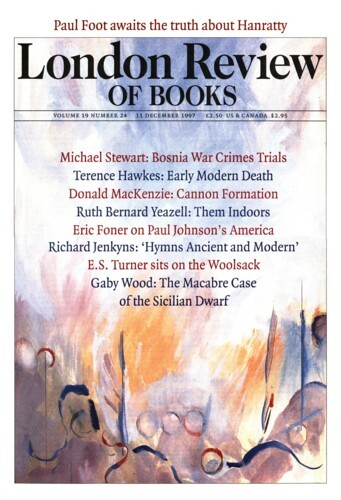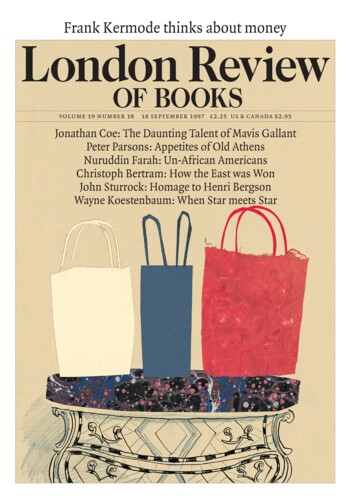Mr Straight and Mr Good: Gordon Brown
Paul Foot, 19 February 1998
‘Happy are they,’ Hazlitt wrote, ‘for whom the guiding star of their youth still shines from afar.’ Judging from this hagiography, the Chancellor of the Exchequer must be very unhappy. The guiding star of his youth has entirely vanished from his firmament. In 1975 the young Gordon Brown compiled, edited and published a socialist manifesto entitled Red Paper for Scotland. At 24, he had just completed a three-year term as rector of Edinburgh University and chaired the University Court in the face of continuous opposition from some of the most powerful men in Scotland. The central political problem of the age, he wrote, was ‘the sheer enormity of the gap between people’s conditions of living and their legitimate aspirations’. This gap could easily be filled by the ‘social forces of production’, but those forces were held back by the so-called free market. It had become ‘increasingly impossible to manage the economy both for private profit and the needs of society as a whole’. The solution had to be drastic: ‘a massive and irreversible shift of power to working people’ and ‘a framework of free universal welfare services controlled by the people who use them’. This was a slightly altered version of Labour’s Programme 1973, which called for FAIS, a ‘fundamental and irreversible shift of power to working people and their families’. Brown argued that a Labour government should bring under public control (without compensation) the building, food, insurance and pensions industries, energy, land, shipbuilding, textiles, banking, and all monopolies and multinationals. The undemocratic and divisive power of these organisations had to be challenged by the new Labour Government since part of the problem was the ‘accumulative [sic] failure’ of previous Labour Governments to deal with it.‘





